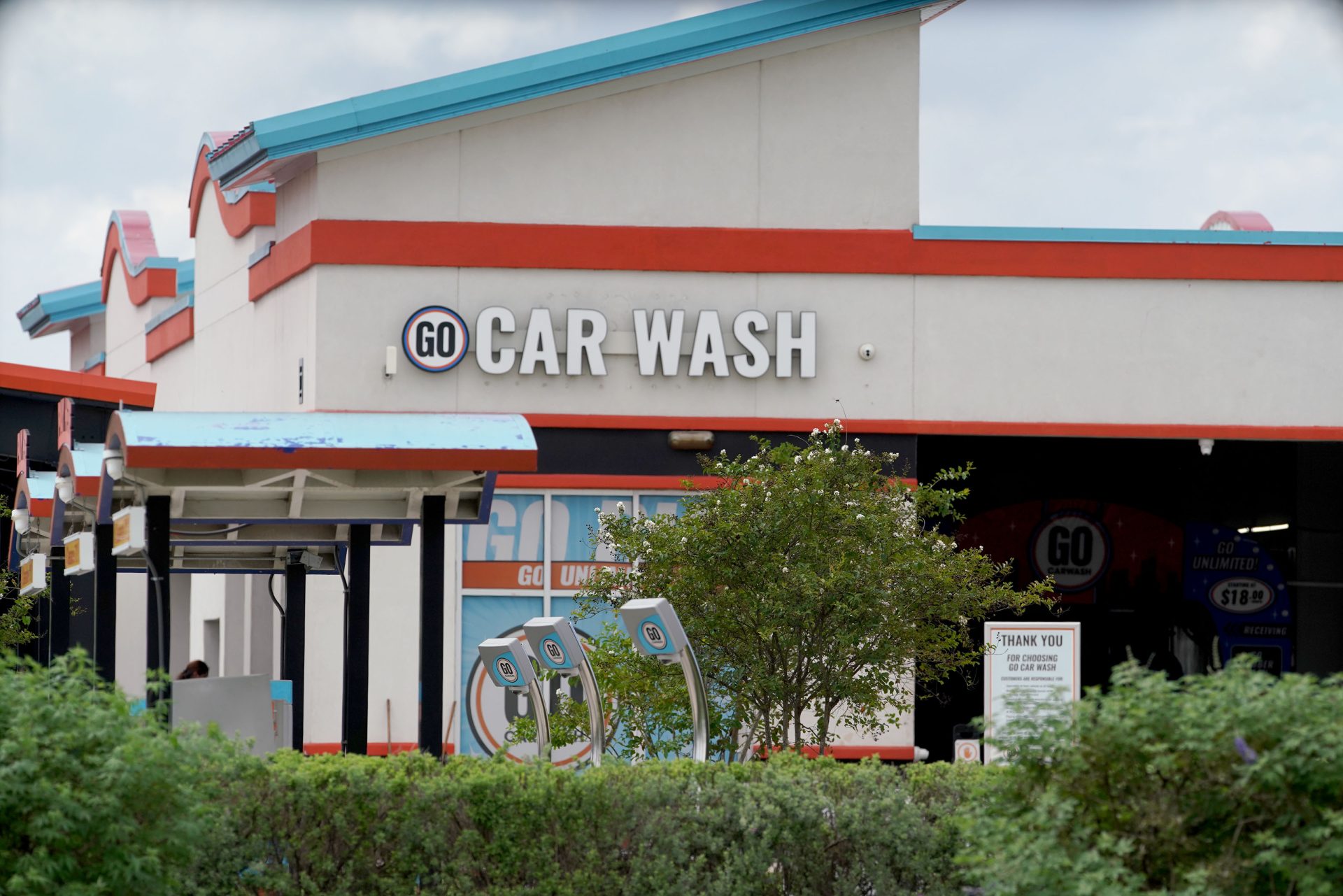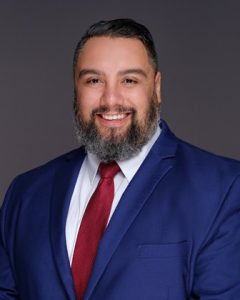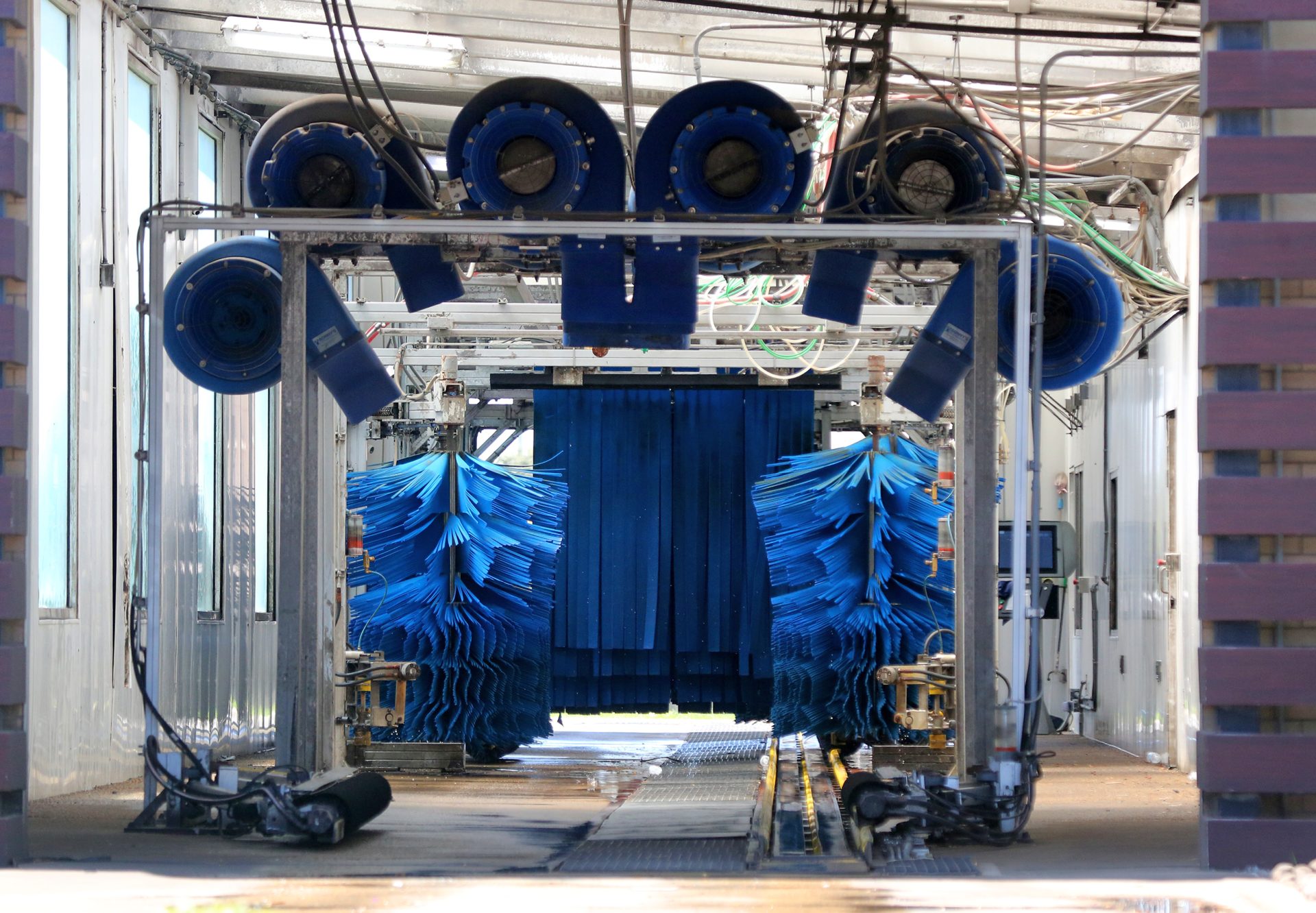|
Only have a minute? Listen instead
Getting your Trinity Audio player ready...
|
HARLINGEN — In the city dubbed “the car wash capital of the Valley,” car wash restrictions are back on the table, with a focus on the lingering drought.
Six months after commissioners shot down proposals to restrict the businesses, there’s a new push to pass zoning regulations controlling the numbers of new car washes while calling on them to conserve water.
With regional water levels standing at 20.27% across Falcon and Amistad reservoirs, Mayor Norma Sepulveda and Commissioner Rene Perez are pushing for the proposal.
Based on her request, WaterWorks, along with the city’s planning department, conducted a study showing one of the city’s biggest car washes used more than 11 million gallons of water last year, or about 34% of city car washes’ total water consumption, Sepulveda said Tuesday in a statement.
”In light of these findings, I am optimistic that the commission now views this ordinance through the critical lens of water conservation,” she said. “With drought conditions affecting our region, I believe we need a balanced approach that reserves our prime commercial spaces for diverse development while also promoting responsible water use.”
Amid a national boom, about 22 car washes are open in town.
Now, commissioners are calling on residents to speak out about the city’s car wash boom.
“We’re going to reach out to the community for their input,” Commissioner Rene Perez said. “You ask anybody in Harlingen what there’s too much of, they’ll say car washes.”
At City Hall, officials are drafting a proposal modeled after an Edinburg ordinance placing a minimum 2-mile distance requirements for new car washes.
“I have independently researched the matter and consulted with my colleagues across the RGV to better understand how other cities are addressing the proliferation of car washes,” Sepulveda said.

In Brownsville, officials are limiting the distance between new car washes while mandating water recycling, she said, adding she considers the measure “promising particularly in terms of water conservation.”
Along the city’s main streets, car washes are eating up commercial lots, Perez said.
“They’re taking prime real estate,” he said.
But when the boom goes bust, the big empty lots could turn into eye sores, Perez said.
“When the bubble pops, we’re going to have all these car washes, and they’re difficult to re-purpose,” he said. “I’m afraid they’re going to stand vacant for years.”
Like most commissioners, Commissioner Daniel Lopez stood opposed to two previous drives to restrict car washes amid the boom Perez says has dubbed Harlingen as “the car wash capital of the Valley.”

”I appreciate that the issue of car washes is one of great concern for the public, especially given local drought conditions,” Lopez said in a statement. “For this reason, I am willing to collaborate with my colleagues on the commission to pass water usage and recycling rules which promote conservation.”
But Lopez said he’s planning to review residents’ input before considering an ordinance restricting car washes.
“Without a current city-wide development plan, I am hesitant to pass an ordinance restricting industry-based business growth,” he said. “Until we receive not only the surveys’ results but a plan of action to implement residents’ vision of a better Harlingen, I would be unlikely to vote to approve such a geographically-restrictive ordinance.”
Since taking office, he’s been working to help make Harlingen business-friendly, Lopez said.
“Through action and deed, I have worked to cut unnecessary and burdensome red tape while working towards effective and efficient methods to promote a new reputation that Harlingen is business and citizen friendly,” he said. “To pass a proposal to curb and control business growth, in this instance car washes, without a plan seems ill-advised and reiterates Harlingen’s old reputation for being unfriendly to businesses.”
Now, he’s waiting for officials to release the city’s new comprehensive plan, Lopez said.
“The soon-to-be released surveys are vital as they seek the public’s input for how they want to see Harlingen grow,” he said.
Along with Orlando Campos, Harlingen Economic Development Corporation’s chief executive officer, Lopez said he’s studied “how beautiful and successful cities do not just occur by happenstance.”
“They are the result of rules and regulations that cultivate attractive downtowns and neighborhoods,” he said. “Such rules may be burdensome at first, but the results of manicured yards, well-kept businesses and homes and stylish businesses are a worthy result, assuming that is what Harlingen residents want.”
Earlier this year, commissioners shot down proposals aimed at controlling the city’s numbers of car washes.
In March, they voted 4-1 against Perez’s plan to bar new car washes along the city’s main thoroughfares including Expressways 77 and 83, Ed Carey Drive, Harrison and Tyler Avenues and Loop 499.
“This ordinance aimed to address congestion issues caused by cars waiting in line to enter these facilities, posing potential safety hazards,” Sepulveda said.
Then in April, commissioners voted 4-1 against Perez’s proposal to require new car washes to obtain special use permits, adequate on-site parking to prevent street congestion and mandatory water conservation measures.
At the time, Commissioner Ford Kinsley questioned the proposal requiring car washes get special use permits while high-volume water users like restaurants and laundromats go unrestricted.




